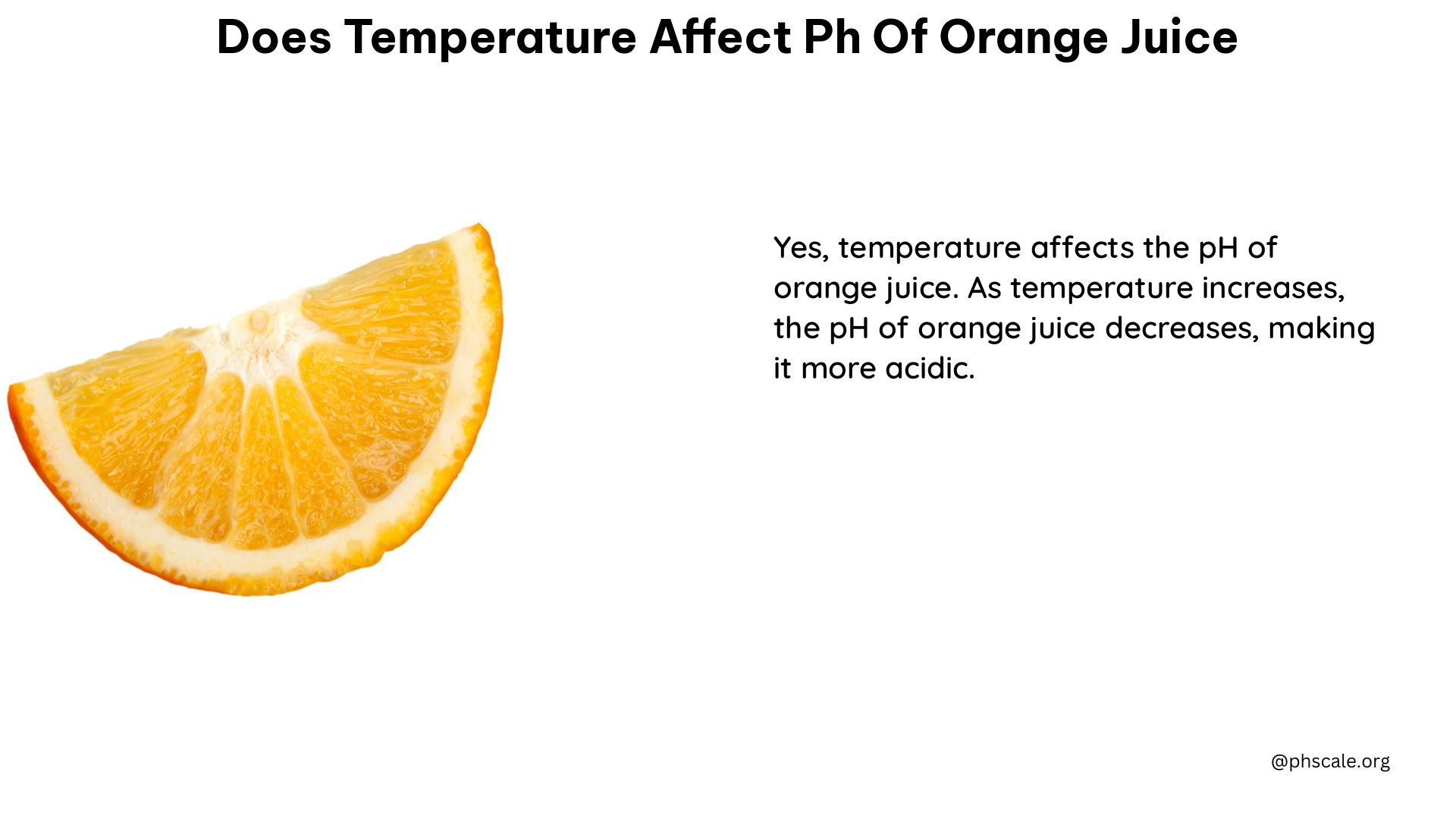Yes, temperature does affect the pH of orange juice. The pH of orange juice decreases with an increase in temperature, making it more acidic. Conversely, a decrease in temperature makes it less acidic, resulting in a higher pH. This relationship is crucial for maintaining the quality and taste of orange juice.
The Relationship Between Temperature and pH
The pH of orange juice changes in response to changes in temperature due to the dissociation of citric acid, a weak acid present in the juice. The dissociation reaction is endothermic, meaning it requires energy to move forward. As the temperature increases, the reaction moves forward, releasing protons and decreasing the pH. Conversely, decreasing the temperature shifts the equilibrium to the left, increasing the pH.
Experimental Findings

Studies have shown that the pH of orange juice decreases with an increase in temperature. For example, one study found that the pH of orange juice decreased from 4.5 at room temperature to 4.3 at 100°C.
Impact of Storage Temperature
The storage temperature of orange juice also affects its acidity. Storing orange juice at warmer temperatures can lead to a decrease in pH, making it more acidic. Conversely, storing it at colder temperatures can lead to a higher pH, making it less acidic.
Ideal pH Range for Orange Juice
The ideal pH range for orange juice is between 3.5 and 4.5, which is slightly acidic. Consuming orange juice within this pH range ensures a balanced taste and optimal nutritional benefits.
Balancing the pH of Orange Juice
To balance the pH of orange juice, you can try the following:
- Storage Temperature: Store orange juice at a consistent refrigerator temperature (around 4°C) to minimize pH changes.
- Acidity Regulation: Add a small amount of baking soda or calcium carbonate to adjust the pH if it becomes too acidic.
- Freshness: Consume orange juice within a few days of opening to prevent pH changes due to oxidation and bacterial growth.
Contaminants and Chemicals in Orange Juice
Orange juice can contain various contaminants and chemicals, including pesticide residues, heavy metals, and microorganisms. To minimize the presence of these contaminants, it is essential to choose organic orange juice, check labels for good manufacturing practices, and store the juice properly.
Conclusion
In conclusion, temperature does have a significant impact on the pH of orange juice. Understanding this relationship is crucial for maintaining the quality and taste of orange juice, as well as ensuring its optimal nutritional benefits. By following the recommended storage and handling practices, you can help preserve the pH balance of your orange juice.
References:
- Barnes, K. (2020). The Effect of Temperature on the pH of Orange Juice. South Carolina Junior Academy of Science, 259. https://scholarexchange.furman.edu/scjas/2020/all/259
- Education.com. (n.d.). Does Storage Temperature Affect Orange Juice’s Acidity? https://www.education.com/science-fair/article/storage-temperature-orange-juices-acidity/
- Prezi. (n.d.). Does Temperature Affect Orange Juice Acidity? – Prezi. https://prezi.com/vg0p0dmjzmyl/does-temperature-affect-orange-juice-acidity/
- UCSB Science Line. (2010). Does Temperature Affect Orange Juice Acidity? http://scienceline.ucsb.edu/getkey.php?key=2414
- Homework.Study.com. (n.d.). Does Temperature Affect Orange Juice Acidity? https://homework.study.com/explanation/does-temperature-affect-orange-juice-acidity.html
